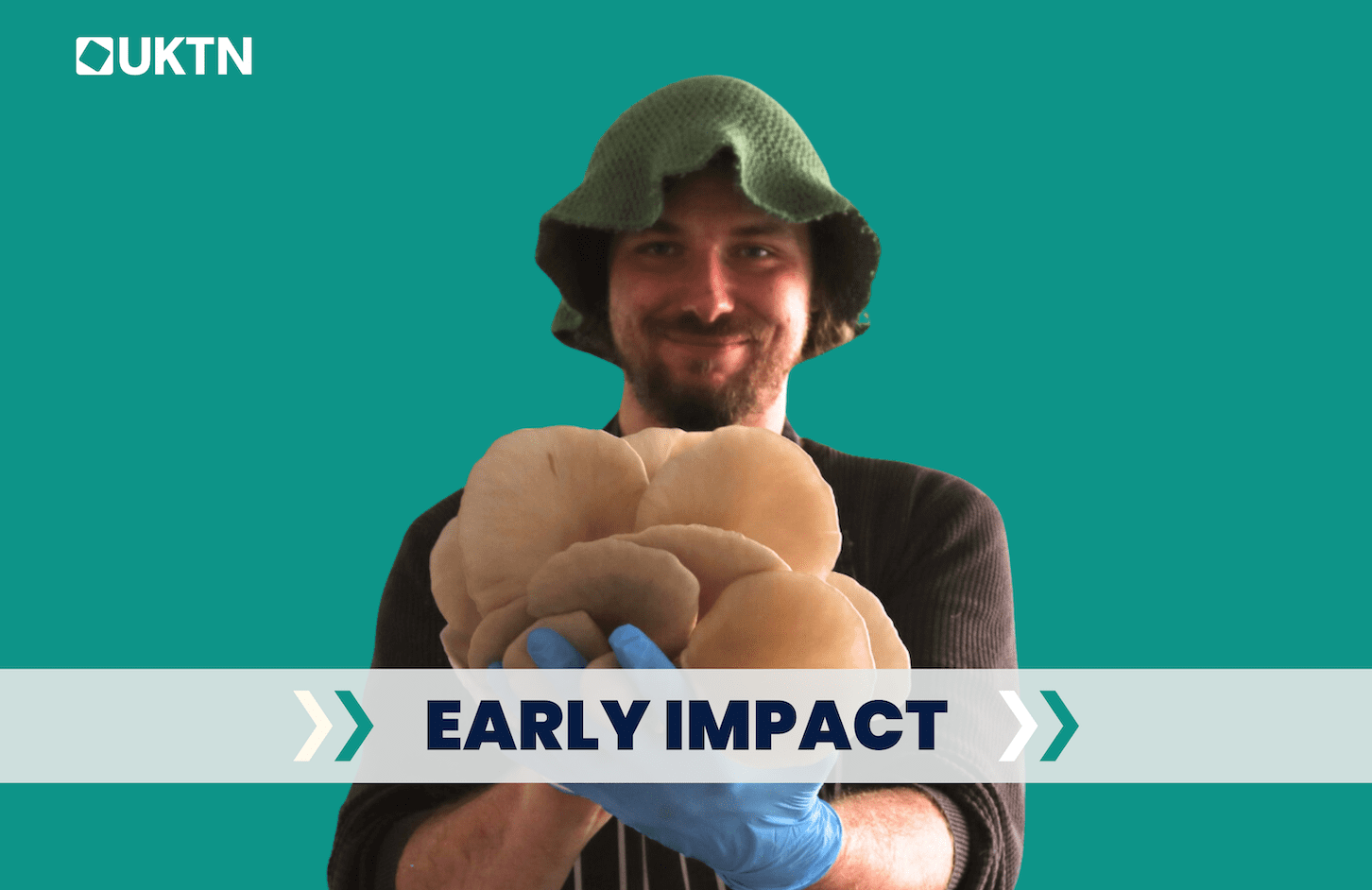Circular urban farming – systems in which food is produced in a sustainable, contained environment without large swathes of farmland – has become a popular prospective solution to the climate impact of agriculture.
The carbon footprint generated from clearing forests for farmland, maintaining crops and livestock, and shipping produce around the world has made the agriculture industry one of the most damaging to the climate.
According to government figures, agriculture accounts for 71% of total nitrous oxide emissions and 49% of all methane emissions in the UK.
On top of that, many urban communities in the UK suffer from limited access to fresh and healthy produce due to the prohibitive cost and lack of vendors in certain areas.
Meet FungALL
FungALL is a non-profit startup based in Manchester hoping to tackle food poverty, climate change and a lack of community spirit – all through the power of mushrooms.
The group sets up circular farming stations in urban areas to grow mushrooms as a food source for the local community.
FungALL was launched by Norton Robinson in 2023. Robinson first started experimenting with mushroom cultivation as an art student. The FungALL founder was exploring the prospect of calculated mycelium growth to create sculptures.
At university, Robinson was also keen on speculative fiction. One project saw him imagine a future in which the world’s agricultural systems collapsed and self-sustaining mushroom farms would be required to meet food demands.
Robinson initially looked at the prospect of building mushroom farms from household items such as humidifiers, aquarium fixtures and cardboard. His experiments caught the attention of some engineering students working on controlled environment technology.
Fast forward to today and FungALL has now developed a circular farming system for growing mushrooms with conditions such as temperature and moisture being controllable from a computer.
‘Food deserts’
FungALL works with local communities to establish these mushroom farms, managed by volunteer teams, to offer fresh and healthy food to residents with limited access.
Robinson said the group chose Merseybank in Manchester as the location for its pilot farm as its “low-income” and geographical position made it a “food desert” – a place where the residents “don’t have a local store within 15 minutes” for fresh vegetables.
Research commissioned by Kellogg’s found that in the UK, 1.2 million people are estimated to be living in food deserts.
From FungALL’s farming stations, two-thirds of the produce goes towards community fridges – public food storage accessible by the community – with the remaining third sold to community project organisers.
After the successful pilot at Merseybank, FungALL received a grant from Young Game Changers, which the team intends to put towards building transportable mushroom farms inside shipping containers.
Among its other projects, FungALL is working with refugees and asylum seekers who similarly face difficulty reliably accessing fresh food. The group ultimately hopes to establish a “network of mushroom farms” led by leaders with “lived experience” serving “thousands of people”.
FungALL is also developing a method of processing leftover mushrooms into other usable products to be sold via an upcoming ecommerce platform to generate additional funds for its community projects.
Early Impact is a monthly UKTN series profiling early-stage startups that are solving societal problems.
The post Early Impact: How FungALL is using urban circular farming to grow community mushrooms appeared first on UKTN.


